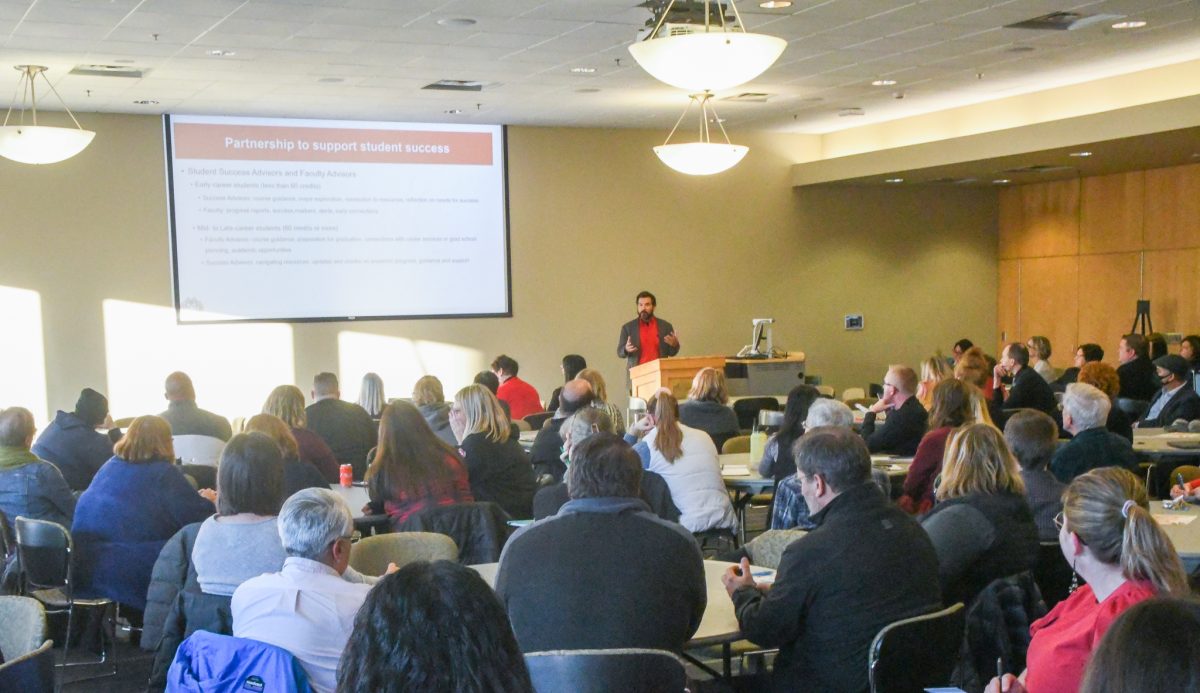
The third annual Student Success and Retention Summit was held on Nov. 30 in the Atwood Center Cascade Room. A large crowd of faculty and staff was on hand to hear about strides made in individualizing support to make students’ college experience more successful.
Dr. Feng-Ling Johnson, Dean of University College and Associate Vice President for Student Success, said providing proactive and timely support is vital for student success.
This increased focus on an individualized approach for student success is part of the It’s Time strategic framework and has keyed recent retention efforts. Success advisors take the time to understand individual students’ needs and support them as they strive to achieve their goals. Johnson added that students that have met with Success Team members have up to a 20 percent higher course pass-rate.
Dr. Kevin Hartshorn, Executive Director of Advising and Student Success, said a common misconception is that students may be performing poorly in class because of their lack of desire to succeed.
“What tends to be true is that students don’t understand why particular aspects of the college experience are important, or they have priorities (financial challenges, family obligations, etc.) that they are having to balance with their academic goals,” Hartshorn said. “This means we need to be very intentional and explicit about the value and importance of the experiences we are providing and work in concert to reduce the barriers and assist the students as they balance their various priorities.”
These changes in advising structure to focus on coaching support has netted positive results. The 2022 30-day admission reports showed that Fall 2021 new entering freshman were retained at a rate of 68 percent, an increase of almost 8 percent from the previous year and the highest rate since 2017.
Graduate student persistence from spring to fall 2022 is also at an all-time high, with the largest returning class in SCSU history.
“An important message from the Summit is that support for student success comes from all quarters,” Hartshorn added. “Initiatives to make textbooks affordable (or even free), having a robust food and resource pantry, and similar efforts remove a crucial barrier to student success. Easing those financial burdens for many students makes the difference of whether or not they can attend the next term … keeping students on track academically takes an all-hands approach.”
A large attendance from faculty and staff also sent a clear message that it is rallying behind efforts to increase student success at St. Cloud State.
“It was a very successful summit; we saw colleagues from not only Academic Affairs but across all divisions,” Dr. Feng-Ling Johnson said. “The energy was really quite robust. Our presentation represented the concept that student success is everybody’s job.”
